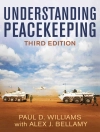Should African and Muslim-majority countries be obliged to protect LGBT rights, or do such rights violate their cultures? Should Western-based corporations be held liable if their security guards injure union activists in another part of the world, or should such decisions be settled under local or domestic law?
In this book, renowned human rights scholar Rhoda E. Howard-Hassmann vigorously defends the universality of human rights, arguing that the entire range of rights is necessary for all individuals everywhere, regardless of sex, color, ethnicity, sexuality, religion or social class.
Howard-Hassmann grounds her defense of universality in her conception of human dignity, which she maintains must include personal autonomy, equality, respect, recognition, and material security. Only social democracies, she contends, can be considered fully rights-protective states. Taking issue with scholars who argue that human rights are ‘Western’ quasi-imperialist impositions on states in the global South, and risk undermining community and social obligation, Howard-Hassmann explains how human rights support communities and can only be preserved if states and individuals observe their duties to protect them.
Table of Content
Acknowledgments vii
Abbreviations ix
Introduction 1
1 Universal Human Rights 6
2 Critical Perspectives on Human Rights 28
3 How Rights-Protective Societies Develop 49
4 Civil and Political Rights 72
5 Culture and Community 93
6 Economic and Social Human Rights 117
7 Collective Human Rights 139
8 Western (Ir)responsibility for Human Rights in the Global South 158
Notes 182
Index 199
About the author
Rhoda E. Howard-Hassmann is Professor Emeritus in the Department of Political Science at Wilfrid Laurier University, where from 2003 to 2016 she held the Canada Research Chair in International Human Rights. She is also a Fellow of the Royal Society of Canada.












